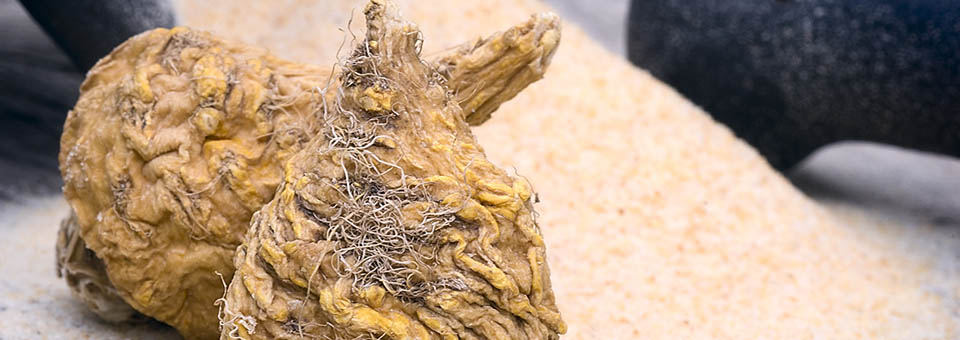Even if you consider yourself a healthy eater, your prostate still probably isn’t getting the nutrients it needs to thrive.
Thanks to industrial farming and modern processing techniques, the food you eat has been stripped of the nourishment that helped keep the prostates of your ancestors healthy and virile.
The result of this modern nutrient deficiency is that your prostate has become inflamed.
Your prostate needs the nourishment that millions of years of evolution determined for it.
The truth is, your prostate has serious shortfalls in the critical nutrients your hunter-gatherer ancestors consumed each day.
And with it comes unpleasant side effects like urinary problems and erectile dysfunction.
But if you’re armed with the right knowledge, you can fight the war against prostate disease — and cure it for good just like your ancestors did.
These gentle plant sterols protect your prostate gland’s cell membranes, helping your prostate to continue to function normally.1
Phytosterols are also potent antioxidants. They can reduce inflammation and improve blood flow, which helps maintain healthy tissue in your prostate and urinary tract.
Studies have shown phytosterols can significantly increase urinary flow and reduce the amount of residual urine remaining in the bladder in men with enlarged prostates.
One study also showed that phytosterols decreased prostate cancer cell growth by 24% and induced apoptosis (programmed cell death) in prostate tumors by 400%.2
Your hunter-gatherer ancestors consumed more than 1,000 mg of phytosterols from their diet. Today, you’re lucky if you get 150 mg daily.3 It’s no wonder that prostrate problems have become epidemic.
One of the most potent phytosterols is beta-sitosterol. In one review of four separate clinical trials involving more than 500 men, beta-sitosterol helped them improve urinary flow and volume and reduce their BPH symptoms in every study.4
You’ll want to include foods rich
in beta-sitosterol in your meal plan. Some of the best sources are avocados, pistachios and grape leaves. For prostate protection, I like to see my patients getting 300 mg a day.I always recommend food as your first best source of nutrients. But to ensure you get enough beta-sitosterol, as well as other vital phytosterols, supplements are a good way to go.
But beware, most commercial prostate formulas contain far too small an amount of phytosterols. Look for one that has at least 300 mg of beta-sitosterol in each capsule.
Take the Best Primal Prostate Boosters
Here are three more powerful prostate boosters that I recommend and use at the Sears Institute for Anti-Aging Medicine:
- Eat the Peruvian plant for virility. The Inca civilization prized the root of the Peruvian mashua plant for its astonishing virility-giving powers. And it’s a powerhouse when it comes to prostate health.5
Maca root is rich in the phytosterols your prostate craves, including stigmasterol… brassicasterol… ergosterol… campesterol… and of course, beta-sitosterol.
You can get raw, organic maca root at specialty stores and on the Internet. Be sure to get Peruvian maca, grown in the Andes. You can also buy maca powder extract.
My favorite way to use maca is in a smoothie. Frozen bananas, strawberries, ice, a little freshly squeezed orange juice and some maca powder makes an incredible morning drink.
Maca supplements are also available as liquid extracts.
- Use this African tree bark to prevent prostate problems. Pygeum Africanum is better known as the African plum tree and the extract from the bark has shown impressive results in prostate sufferers. Like saw palmetto, it has been used in Europe as a prevention and treatment of prostate disorders, including BPH, for years.
All of the four main groups of phytochemicals found in pygeum have been shown to be beneficial to prostate health. All four naturally reduce the conversion of testosterone to DHT.
Studies show pygeum bark extract also improves urinary flow and sexual performance, and also reduces late-night bathroom trips.6
One review of 18 studies confirmed dramatic improvements in urinary health. In one of the studies, men described having healthy urinary flow in just 60 days.7
And another study reported in Endocrine tested the anticancer potential of pygeum and discovered it inhibited the growth of prostate cancer cells, induced apoptosis, or cell death. Mice fed with pygeum showed a 35% reduction in prostate cancer incidence.8
You can buy pygeum bark extract in capsules or as a tincture at most health food stores and online. Most of the pygeum supplements out there are standardized at 13% total sterols. Look for supplements that are standardized at 14% or higher. I recommend 200 mg per day.
- Turbo-charge your peeing power with concentrated pollen extract. Yes, the same stuff that bees gather to make honey has also been shown to lessen prostate swelling by reducing DHT. It also turbo-charges your peeing power.9 I recommend 1,500 mg a day of bee pollen extract split into three doses before meals.
To Your Good Health,
![]()
Al Sears, MD, CNS
References
1. Halling KK and Slotte JP. “Membrane properties of plant sterols in phospholipid bilayers.” Biochim Biophys Acta. 2004;1664(2):161-171.
2. von Holtz RL, et al. “Beta-sitosterol activates the sphingomyelin cycle and induces apoptosis in LNCaP human prostate cancer cells.” Nutr Cancer. 1998;32(1):8-12.
3. Phytosterols. Linus Pauling Institute Micronutrient Information Center.
4. McNicholas T and Kirby R. “Benign prostatic hyperplasia and male lower urinary tract symptoms (LUTS).” BMJ Clin Evid. 201126;2011.
5. Gonzales GF, et al. “Red maca (Lepidium meyenii) reduced prostate size in rats.” Reprod Biol Endocrinol. 2005 3:5.
6. Carani, C, et al. “Urological and sexual evaluation of BPH and pygeum.”Arch Ital Urol Nefrol Androl. 1991:63(3):341-345.
7. Andro MC and Riffaud JP. “Pygeum africanun extract for treatment of patients with BPH:A review of 25 years of published experience.” Curr Ther Res. 1995;56:796-817.
8. Shenouda NS, et al. “Phytosterol pygeum africanum regulates prostate cancer in vitro and in vivo.” Endocrine. 2007;31(1):72-81.
9. Rugendorff EW, et al. “Results of treatment with pollen extract (Cernilton) in chronic prostatitis and prostatodynia.” Br J Urol. 1993;71(4):433-438.

